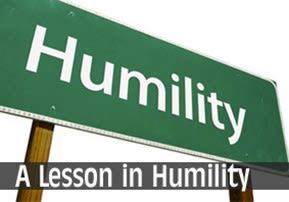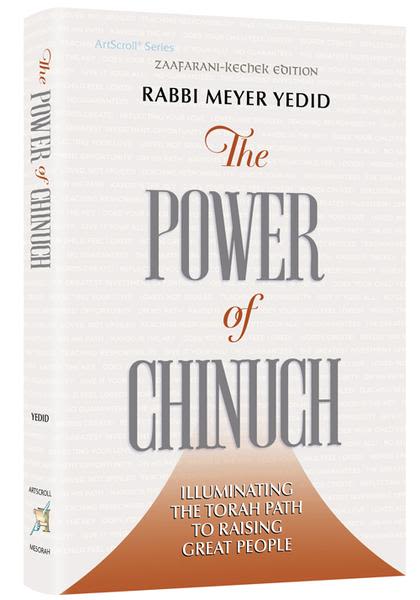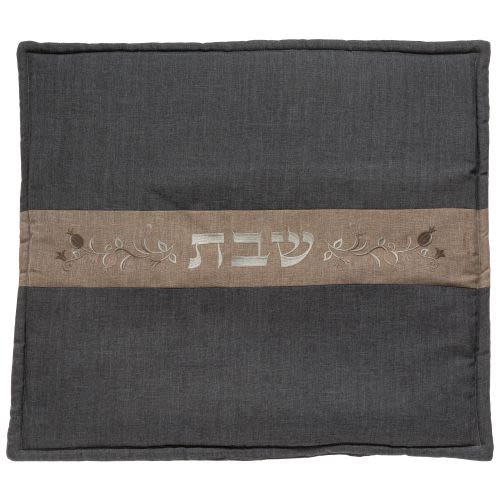
Yitro: A Lesson in Humility
The Midrash says that when God decided to give the Torah to the Jews, all of the mountains in the desert...

Parshat Yitro
Shemot 18:1-20:23
The Midrash says that when God decided to give the Torah to the Jews, all of the mountains in the desert (except Mt. Sinai) vied for the honor of being chosen for this great event. Only Mt. Sinai did not claim itself to be the most fitting site, and for this reason it was selected by God. In addition, the Torah was given in the barren desert, to show that the Torah provides its own glories and doesn't require the trappings of a fancy exterior to be great. Similarly, a person is to be judged on his inner, rather than exterior, qualities. (Rabbi Mordechai Katz)
When the Twains meet
Rambam explains that the Torah was given to us not merely to spread Divine light, but to cultivate "peace". "Peace" refers to harmony between opposites. Chazal teach that the verse "the heavens are the heavens of God, but the earth He gave to the children of man" means that originally there was a Divine decree separating the physical from the spiritual; at the time of the giving of the Torah, however, God "nullified this decree" and allowed for unity between the two. However, true peace involves more than the mere negation of opposition. The intent is that forces that were previously at odds should recognize a common ground and join together in positive activity, to bring about an awareness of the Godliness in every element of existence. (the Lubavitcher Rebbe, Rabbi Menachem M. Schneerson, zt"l)
Free choice or force?
When God offered the Jews the Torah, they proclaimed "Na'aseh v'nishma" "We will observe and then we will hear what the Torah contains." This suggests that the Jews accepted the Torah on their own accord. Why, then, does the Gemorah state that God threatened the Jews by suspending a mountain over their head until they agreed to accept the Torah? The Midrash teaches that while their acceptance was immediate and enthusiastic, God's "force" refers to later generations of Jews. Our ancestors were wise enough to perceive the great prize that God offered and we cannot undo their good work by forsaking that gift. (Rabbi Mordechai Katz)
Honoring One's Father and Mother
The Ten Commandments are divided into two categories — the first five are comprised of the laws between man and God, while the second five relate to laws between man and man. Why, then, is honoring one's parents listed in the first five?
1. The Talmud teaches that whoever honors his parents honors God, since it indicates a willingness to accept authority and to carry on the Jewish tradition.
2. Haamek Davar adds that despite one's natural love [or, God forbid, lack thereof] for one's parents, respect for them is part of one's obligation to God.
3. Respect for parents is a cornerstone of faith in the entire Torah, for our tradition is based on the chain from Avraham and Sinai, a chain in which the links are successive generations of parents and children (Meshech Chochmah). (Rabbi Mordechai Katz)
Remember and Keep the Shabbos
"Remember the Shabbos day to keep it holy" (Shemot 20:8).
The words "remember" "shamor," and "keep" "zachor" were spoken in one utterance (Rashi). A poor man may find it easy to "keep" the Shabbos since he has no business concerns which demand his attention on Shabbos, but he may have difficulties "remembering" the Shabbos since he may lack the money to purchase food and wine in honor of Shabbos. A wealthy man, on the other hand, may find it simple to "remember" the Shabbos, since he has plenty of money, but may find himself remiss in "keeping" the Shabbos for fear that he might suffer a financial loss by closing his business for the day. Thus, Chazal point out that the two commands — to "remember" and "keep" the Shabbos — were said in one utterance and that therefore no distinction can be made between the two. The wealthy man is duty bound not only to "remember" the Shabbos, but to "keep" it as well. At the same time, he must help the poor man to "remember" the Shabbos by providing financial assistance to enable him to "remember" it fittingly. (Dubno Maggid)
“In the third month after Israelites left Egypt, on the first day of the month, they came to the desert of Sinai… Israel camped opposite the mountain to receive to the Torah] (Shemot 19:1-2).
Our Parsha deals with the giving of the Torah at Mount Sinai. The Torah was given less than three months after the Jews left Egypt. Torah study is the main purpose of creation, and the reason for the world's continuous existence. Many people wonder why God waited until the twenty- sixth generation (from the creation of Adam) to give the Torah. If the information contained in the Torah is so vital for man's spiritual growth, why did God wait twenty-six generations?
Each letter of Torah contains the endless light of God. Were it not for the existence of the Torah, this world would be unable to tolerate the immense light emanating directly from God. Each letter acts as a vessel to hold God's infinite light, reducing and filtering the intensity of God's great light. Thus, each letter of Torah allows us to use God's immense light safely. This is a great miracle and one of the reason why a Torah scroll is written with black ink. The black ink spiritually dims the intensity of God's great light. This is one reason Tefillin are painted black.
Originally, God intended to give the Torah after one thousand generations, as the verse says, "He [God] remembered His covenant forever, the word which He commanded [the Torah] [up] to a thousand generations [He wanted to wait until He revealed it to the world]" (Tehillim 105:8). According to God's original plans, the world would have purified itself during those one thousand generations, enabling man to tolerate a much greater intensity of God's light. God would have revealed the Torah's inner light to the world. This type of revelation would have been on a much higher level than the revelation at Mount Sinai, which took place after the twenty-sixth generation.
God saw that the world could not endure without Torah. The majority of the people who lived during the twenty generations between Adam and Avraham were corrupt and evil. The world needed the moral instruction contained in the Torah, although this was on a lower level of revelation than the original revelation that was to take place after one thousand generations. Since this revelation was on such a low level, understanding of Tora is also on a low level. For this reason, we have such difficulty understanding Torah. The Moshiach will purify the world to such an extent that everyone will be able to comprehend the inner light of the Torah, as the verse states: "The earth shall be full of the knowledge of God, as the waters cover the sea" (Yeshayahu 11:9). (Lekutai Halachot: Choshen Mishpat: Hilchot Aidus 4:4)
For this reason, many people find it difficult to understand Torah. They become frustrated, discouraged, and brokenhearted. Rebbe Nachman addresses this situation.
There are several reasons why a person is unable to study the Torah – he is either unlearned or traveling in a desert or in a place where no Torah books are available to him etc. When a person is unable to study, yet longs to learn Torah and serve God, this desire itself is an aspect of learning Torah. [The Zohar says that no good thought or intention is ever lost].
Rebbe Nachman understand this from the following verse: "Then those who fear God converse one with his fellow [in Torah study], and God heard and listened to it [their Torah conversation]; and a book of remembrance was written before Him [God], for those who fear God and contemplate His name" (Malachi 3:16).
"Then those who fear God conversed one with his fellow." This phrase refers to two individuals who are learning Torah. Although they are many miles apart and do not know each other, when one raises a question, the other unknowingly provides the answer. The fact that these two individuals are unaware of each other is apparent from the next phrase of this verse. "God heard and listened to it." In other words, God alone hears their words of Torah. God hears the Torah of these two individuals and connects their words together to write them into book as a remembrance, as the verse states, "and a book was written before Him [God]."
This book enabled Avraham to find God. Avraham yearned to discover God and that yearning enabled him to draw spiritually from this book. The Torah teachings contained in this book were composed by such unconnected tzaddikim as Adam, Chanoch, Mezushelach, Noach, Shem and Aver. No one should ever feel that excluded from the Torah. If one yearns often enough, God will open up the gates of Torah learning, just as he did to our ancestor, Avraham. (Lekutei Moharan I:142)
The following story will help us understand the concept of inner Torah:
The holy Ari told his students that he had to cry an endless amount of tears for every secret that was revealed to him from Heaven. The Ari had purified himself to such an extent that all the fountains of wisdom were opened up to him. Eliyahu Hanavi (Elijah the prophet) revealed to him the most lofty and hidden secrets of the Torah. When the Ari would go to sleep, his soul would ascend to the heavenly Torah academies. Each time he ascended to heaven, an angel would ask him in which academy he would prefer to study. At times, the Ari would request to study in the academy of those who wrote the books of the Zohar, Rebbe Hamuna Saba or Rebbe Yaiva Saba. There he would grasp the inner meanings of the Zohar. At other times he would learn in the academies of Betzalel, who built the Tabernacle in the desert. There he would learn the deep spiritual secrets contained in the Tabernacle's structure. Sometimes the Ari would choose to study in the Yeshiva of Aharon the High Priest. There he would learn the secrets associated with the Temple service. At times, he would learn in the schools of the prophets and would be taught the deep secrets behind each of the prophesies.
The Ari told his students that if they would purify themselves, they too could merit to learn in the heavenly academies. The Ari also said that what he learned in the heavenly academies in one night could not be written in eighty years in this world. (Sepurim Mi'Olam HaEmes p. 28)










2/13/2025
Very insightful learned alot to bring to the shabbos table